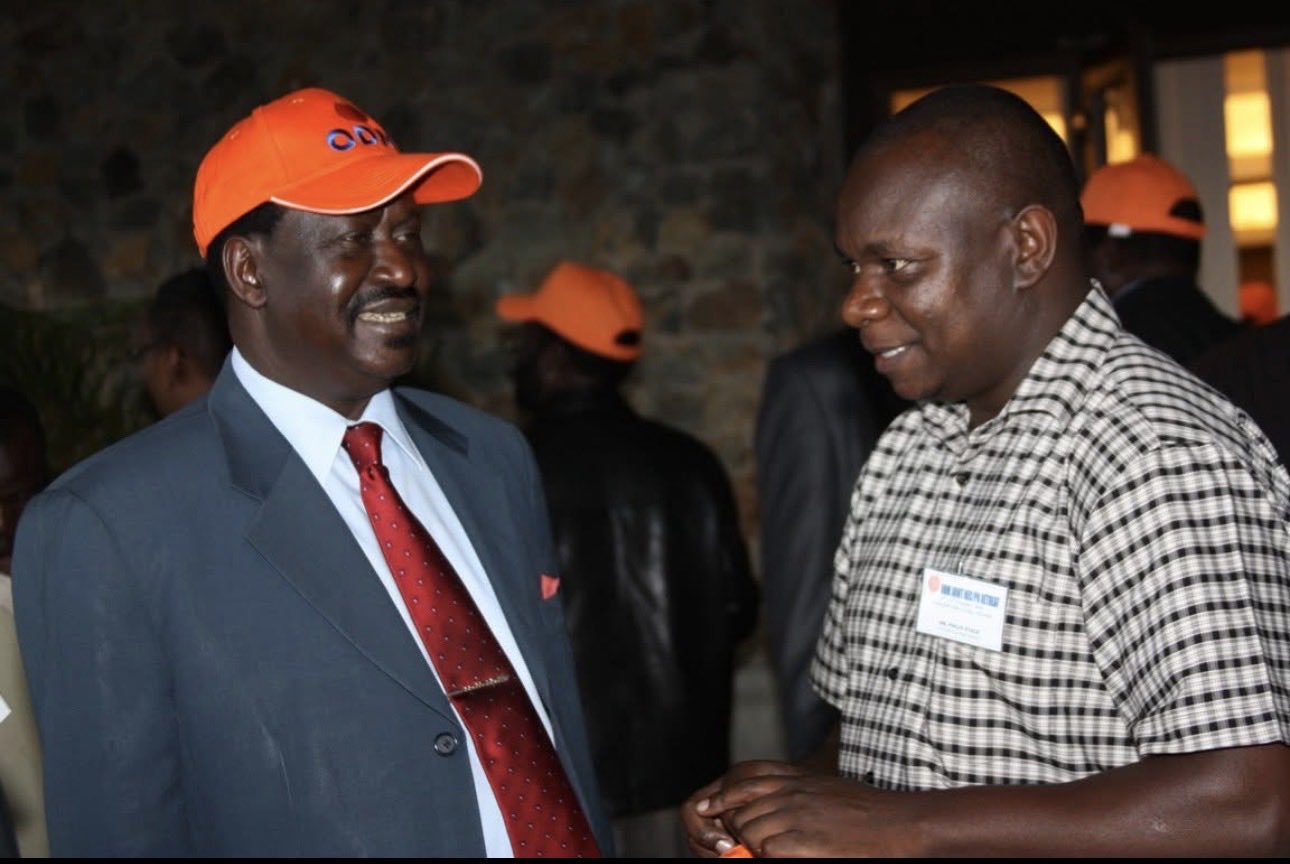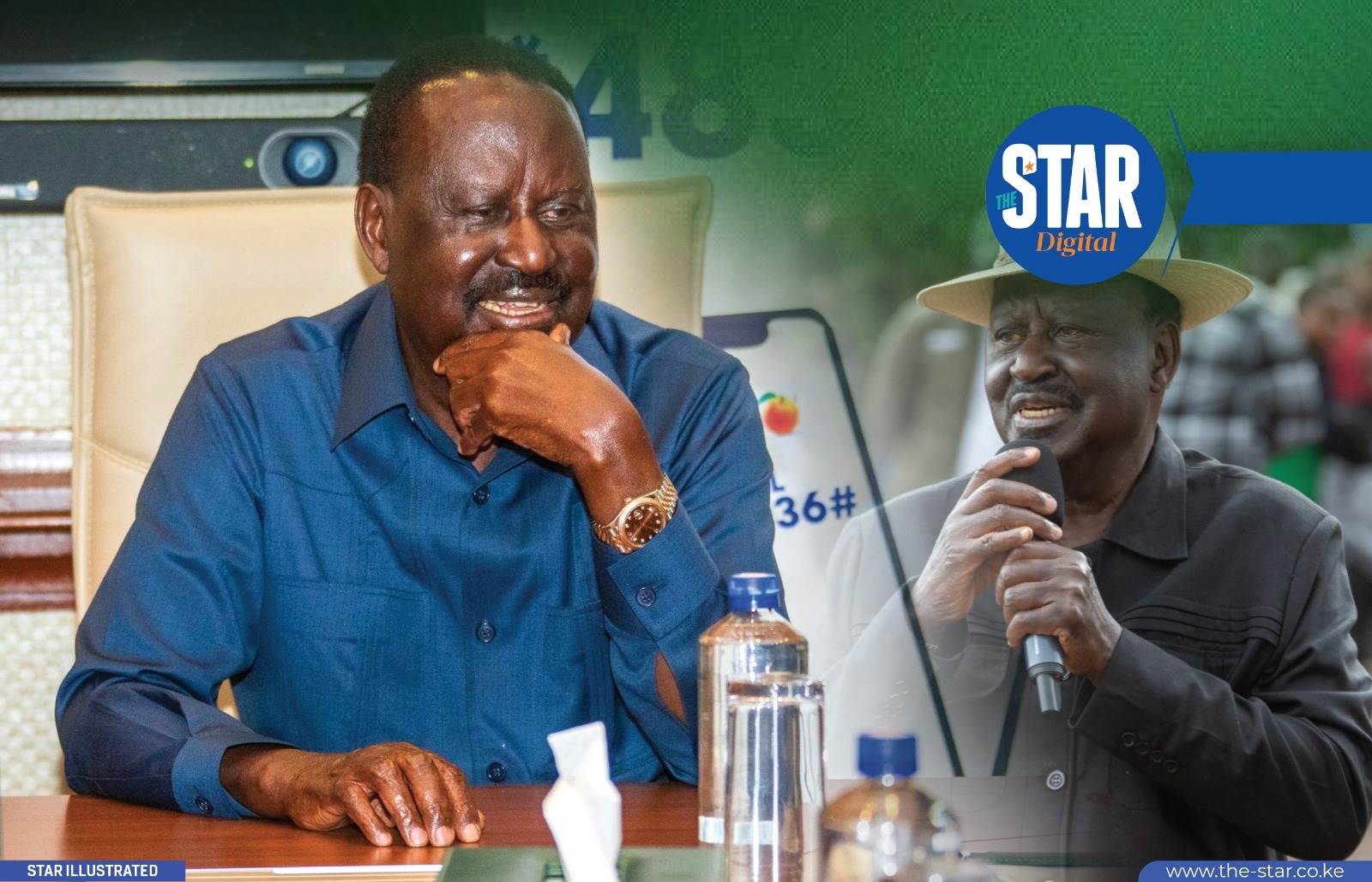
 Raila Odinga with ODM communications director Philip Etale on November 10, 2010. /PHILIP ETALE
Raila Odinga with ODM communications director Philip Etale on November 10, 2010. /PHILIP ETALEWednesday's untimely death of former Prime Minister and ODM leader Raila Odinga continues to stir deep emotions across Kenya, as close allies share rare insights into the life and principles of a man revered as the doyen of opposition politics.
Raila, 80, succumbed to cardiac arrest while undergoing treatment in India.
He will be laid to rest on Sunday at his rural home in Bondo, in accordance with his wish to be buried within 72 hours of his death.
Leaders from across the political divide and dignitaries from around the world have eulogised him as a true statesman and a father of democracy who spent his life fighting against oppression and advocating for good governance.
Raila’s political career spanned more than four decades.
He vied for the presidency a record five times, building a reputation as a leader who rejected handouts and believed in the sovereignty of the people’s will.
His critics and admirers alike acknowledge that he shaped the character of Kenya’s democracy through his fierce defence of electoral integrity and his resilience in the face of defeat.
Although he challenged and lost all but one presidential election outcome in court, Raila never once sought to subvert the will of the people.
Even though the Supreme Court nullified the 2017 poll, citing illegalities and irregularities and handing him a lifeline by ordering a repeat election, Raila boycotted the repeat vote, insisting that the process remained compromised.
In a heartfelt tribute to the fallen ODM leader, the party’s Director of Communication, Philip Etale, recounted an incident that underscored Raila’s steadfast commitment to fair play.
Etale revealed that Raila once nearly slapped him for suggesting that they consider rigging elections — a proposal the ODM chief found deeply offensive.
“Baba was so close to me. He was a gentleman. He could never sleep with my missed call — he returned it even in the middle of the night. He loved order and respected the rule of law,” Etale wrote in a post on X (formerly Twitter).
“He once almost slapped me when I cheekily suggested to him that, ‘Sir, now that these people are used to stealing your victory in broad daylight, why can’t we also plan to rig the election?’ I remember we were at the Nairobi Club. He turned blue, looked at me with sharp eyes, switched his phone from the left to the right hand. Then I knew he was about to smack my face,” Etale recalled.
“Stop this nonsense. Why would a sane person plan to rig a democratic election? Kenyans pay a lot of money to have a credible election. Chebukati and his team are up to the task,” Raila reportedly told him.
Etale said he immediately apologised for angering his boss and mentor. “I looked at him with shame and apologised for causing him anger. Baba, I will miss you,” he added.
The remarks appeared to reference the 2022 presidential election in which President William Ruto was declared winner.
Raila challenged the outcome at the Supreme Court, but his petition was dismissed for lack of sufficient evidence to warrant nullification.
Raila’s electoral history remains the defining feature of his political life. Many of his supporters still believe he won the disputed 2007 election, which triggered post-election violence that left more than 1,000 people dead and hundreds of thousands displaced.
The Independent Review Commission, chaired by retired South African judge Johann Kriegler, concluded that it was impossible to determine who had actually won the election, given the widespread irregularities.
Raila would later reach a truce with Mwai Kibaki, resulting in the formation of the grand coalition government in which he served as the Prime Minister following a power-sharing deal mediated by former UN chief Koffi Annan.
In 2017, the Supreme Court, led by then Chief Justice David Maraga, made history by annulling the presidential election, declaring that the results were not verifiable.
That landmark decision was widely seen as vindication for Raila’s long fight for electoral justice.
To his supporters, Raila Odinga embodied the struggle for democracy and justice. To his critics, he was a relentless challenger of authority.
But to those who worked closely with him — like Etale — he was a disciplined democrat who valued integrity above power.
As Kenya prepares to bid farewell to the man who shaped its modern political landscape, more tributes are expected to reveal the personal side of a leader who, even in private, refused to compromise on principle.














